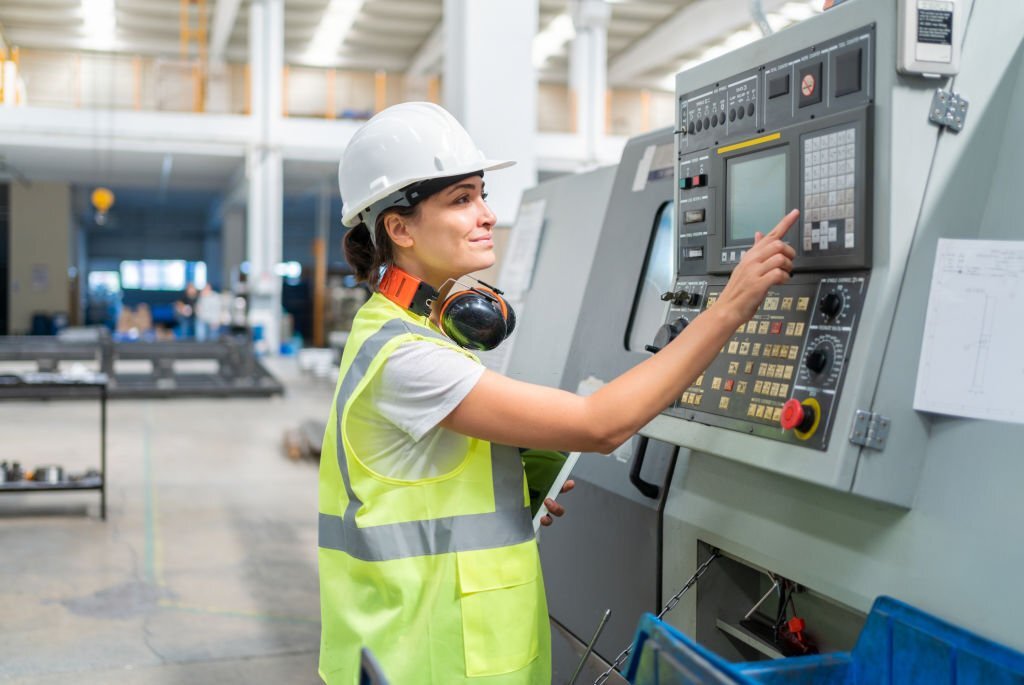
Operating industrial machinery comes with its fair share of challenges that require careful management and attention. From maintenance requirements to operator training, safety protocols, downtime, and performance optimization, various factors can impact the smooth and efficient operation of industrial machinery. Understanding and addressing these challenges is essential to ensure productivity, minimize downtime, and maintain a safe work environment. This article highlights common challenges faced when operating industrial machinery and provides insights on how to overcome them effectively.
Maintenance and Preventive Measures
One of the primary challenges in operating industrial machinery is ensuring proper maintenance and implementing preventive measures. Machinery breakdowns can disrupt production schedules and result in costly repairs. Establishing a comprehensive maintenance plan, including regular inspections, lubrication, and timely component replacement, is crucial to minimize unexpected failures. Adhering to manufacturer guidelines and implementing preventive measures, such as predictive maintenance based on data analysis and condition monitoring, can significantly reduce downtime and improve machinery reliability.
Operator Training and Skill Development
Insufficient operator training and skill gaps can lead to inefficiencies and safety risks when operating industrial machinery. It is essential to provide comprehensive training programs that cover equipment operation, maintenance procedures, and safety protocols. Ongoing skill development and refresher training sessions help operators stay updated on the latest technologies, best practices, and safety regulations. Investing in operator training not only enhances machine operation but also promotes a safe working environment and reduces the likelihood of accidents or errors.
Compliance with Safety Protocols
Maintaining a safe work environment is crucial when operating industrial machinery. Compliance with safety protocols is essential to prevent accidents, injuries, and equipment damage. Regular safety inspections, risk assessments, and hazard identification are necessary to identify potential dangers and implement appropriate safety measures. Adequate safety signage, personal protective equipment (PPE), machine guarding, and clear communication protocols help mitigate risks and create a safety-conscious culture among operators and maintenance personnel.
Downtime and Production Interruptions
Downtime can significantly impact productivity and profitability. Equipment breakdowns, maintenance activities, and unforeseen issues can lead to unplanned downtime. To minimize downtime, proactive measures such as implementing a robust maintenance program, utilizing predictive maintenance techniques, and having readily available spare parts can be effective. Regular equipment inspections, early detection of potential issues, and prompt repairs or replacements are crucial to keep industrial machinery operational and minimize production interruptions.
Performance Optimization and Efficiency
Optimizing the performance and efficiency of industrial machinery is an ongoing challenge. Factors such as production speed, energy consumption, and waste reduction need to be carefully monitored and managed. Analyzing data collected from the machinery, employing advanced technologies like AI and machine learning, and implementing process improvements can help identify bottlenecks, optimize settings, and streamline operations. Regular performance evaluations, continuous improvement initiatives, and collaboration with equipment manufacturers can contribute to enhancing efficiency and maximizing production output.
Integration of New Technologies
Integrating new technologies into existing industrial machinery can pose challenges. Legacy systems may not be compatible with modern automation, connectivity, or control systems. Upgrading or retrofitting machinery to incorporate advanced technologies may require careful planning, consultation with experts, and proper integration. Conducting a thorough assessment of existing systems, considering the compatibility of new technologies, and collaborating with technology providers are vital to successfully integrate new advancements into industrial machinery.
Conclusion
Operating industrial machinery involves managing various challenges that can impact productivity, safety, and efficiency. Addressing common issues such as maintenance, operator training, safety protocols, downtime, and performance optimization is crucial for smooth and efficient operation. Implementing preventive maintenance, providing comprehensive training programs, ensuring compliance with safety protocols, minimizing downtime through proactive measures, and optimizing performance through data analysis and process improvements are key steps in overcoming these challenges. By effectively managing these challenges, industries can enhance productivity, reduce costs, and create a safer and more efficient working environment for operating industrial machinery.



